Book Summary: Radical Candor Quadrants
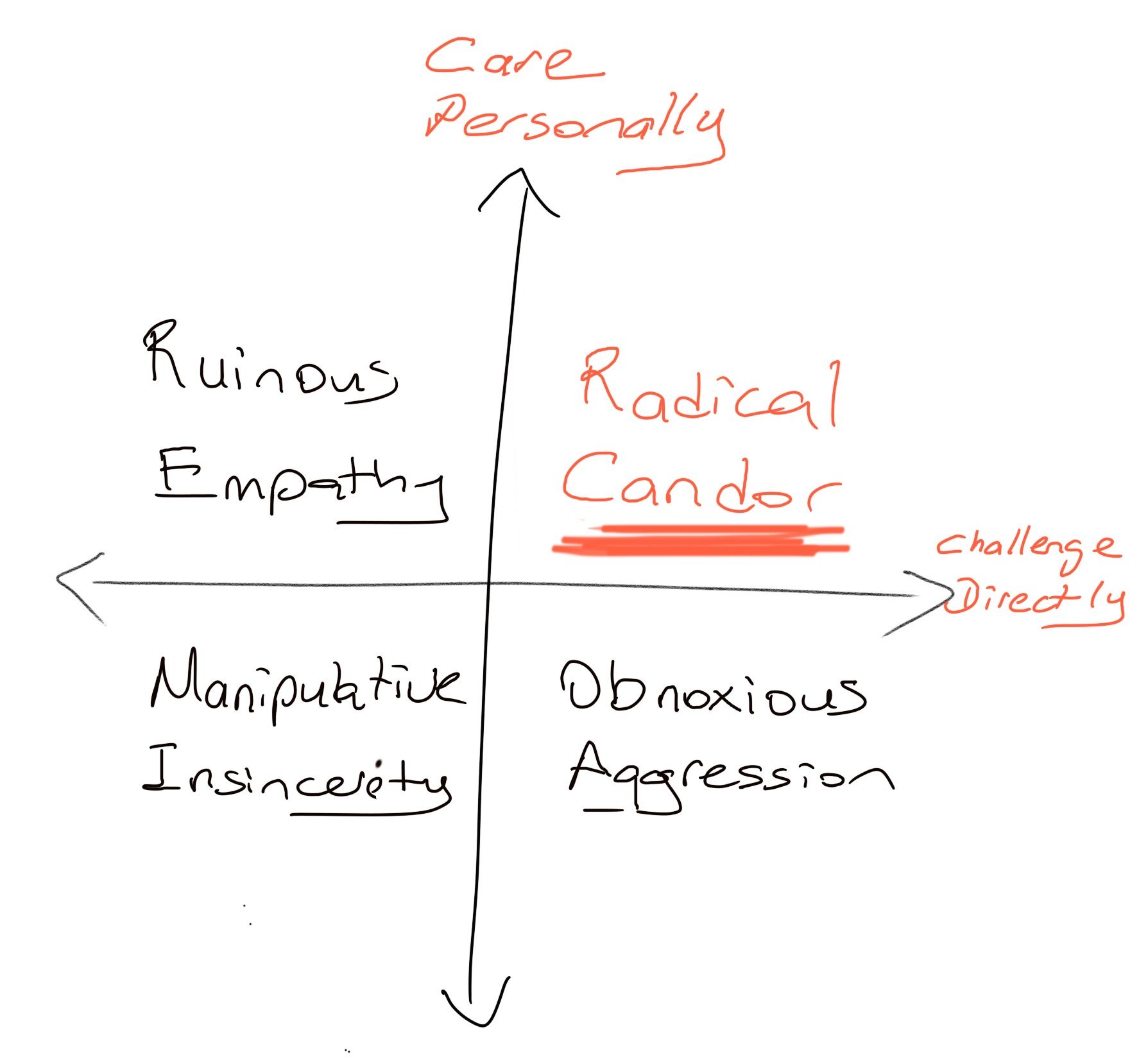
Whether you are manager or an individual contributor I highly recommend reading the book Radical Candor by Kim Scott. Kim covers a lot of great concepts in her book but I would like to share a summary of the concept that helps managers give radically candor feedback to their people.
Kim starts by stressing on relationships and how relationships, not power, drive your team forward.
Relationships are core to your job. They determine whether you can fulfill your three responsibilities as a manager. 1) to create culture of feedback that will keep everyone moving forward in the right direction 2) understand what motivates each person on your team well enough to avoid burnout or boredom and keep the team. 3) drive results collaboratively. If you think you can do these things without relationships you are kidding yourself
Radical Candor
Kim explains two dimensions that help build the relationships in a team and how you arrive at Radical Candor when you use these dimensions at the same time.
Care Personally
The first dimension is about being more than "just professional". It is about giving a damn, sharing more than just your work self, and encouraging everyone who reports to you to do the same. It is not enough to care only about people's ability to perform the job. It is personal, and deeply personal. I call this dimension "Care Personally"
Challenge Directly
The second dimension involves telling people when their work isn't good enough– and when it is; when they are not going to get that new role they wanted, or when you are going to hire a new boss "over" them. Delivering hard feedback, making hard calls. about who does what on a team, and holding a high bar for results. Challenging people is often the best way to show them that you care when you are the boss. This dimension I call "Challenge Directly"
"Radical Candor" is what happens when you put "Care Personally" and "Challenge Directly" together. Radical Candor builds trust and opens the door for the kind of communication that helps you achieve the results you are aiming for.
Operationalizing Radical Candor
The author explains the two dimensions of Radical Candor and provides examples which are helpful. Once these dimensions are understood, the author introduces the radical condor quadrants as a guide for providing radically candid guidance to team members.
Quadrant: Radical Candor
As mentioned earlier there are two dimensions to good guidance: care personally and challenge directly. When you use both at the same time, it is Radical Candor.
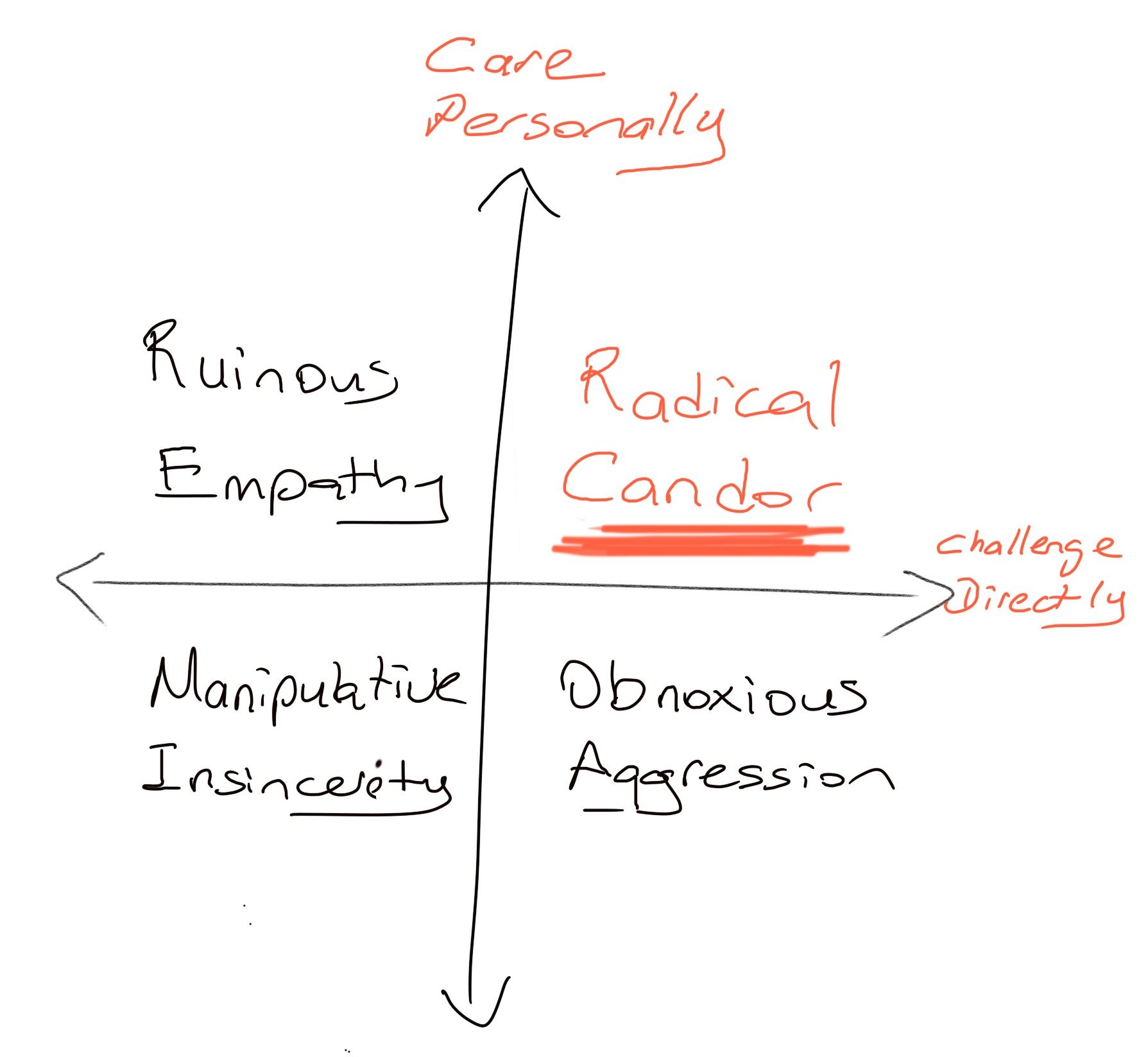
I don't have to spend a lot of time getting to know a person or building trust before offering Radically Candid guidance. In fact, a great way to get to know somebody and to build trust is to offer Radically Candid praise and criticism.
It is also useful to be clear about what happens when you fail in one dimension (Ruinous Empathy), or the other (Obnoxious Aggression) or both (Manipulative Insincerity).
Let's take a look at each quadrant and give a quick summary of what the author is communicating.
Quadrant: Obnoxious Aggression
When you criticize someone without taking even two seconds to show you care, your guidance feels obnoxiously aggressive to the recipient.
I regret to say that if you can't be Radically Candid, being obnoxiously aggressive is the second best thing you can do. At least then people know what you think and where they stand, so your team can achieve results.
Fundamental human decency is something every person owes every other, regardless of position.
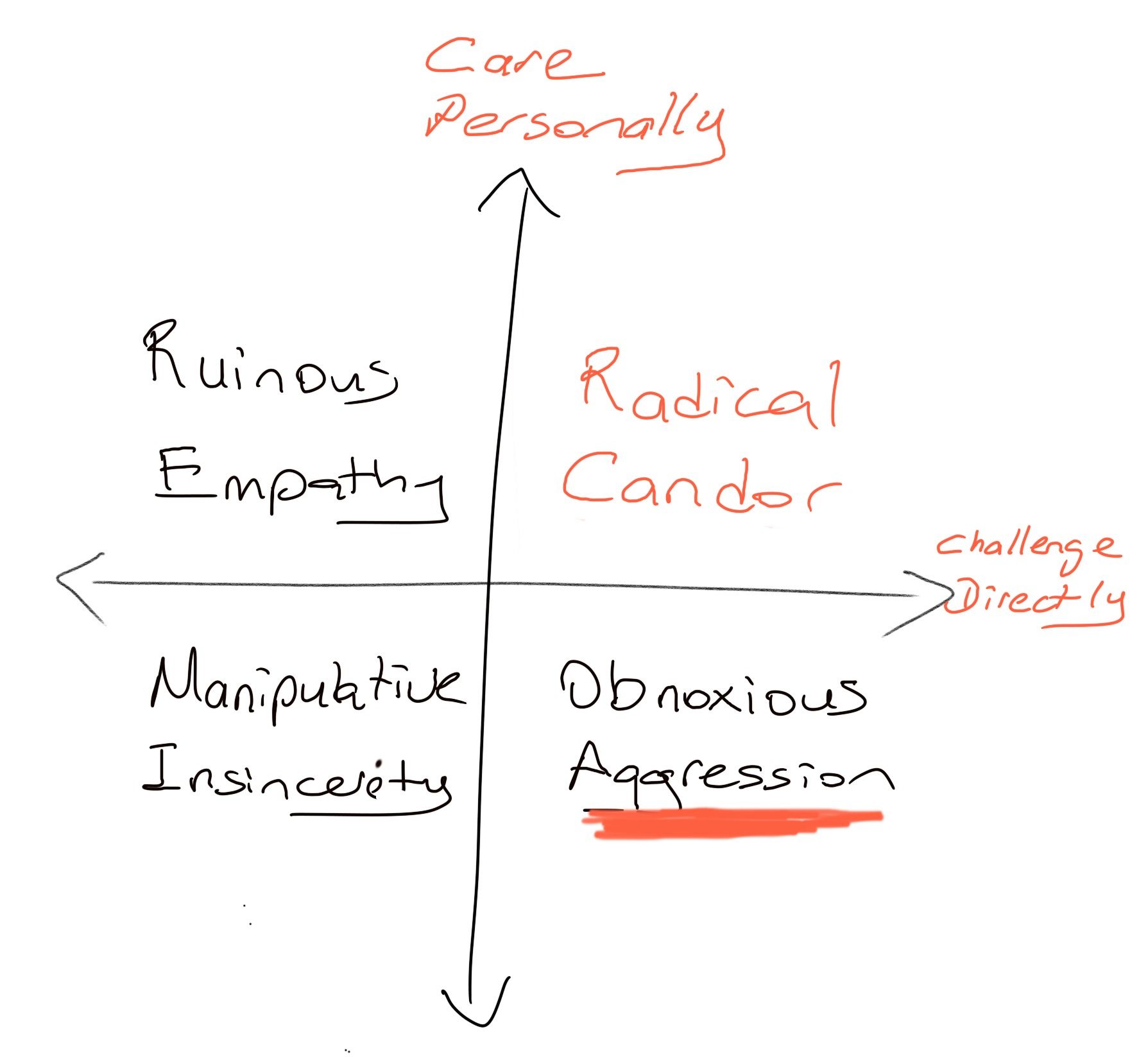
Quadrant: Manipulative Insincerity
Manipulative insincere guidance happens when you don't care enough about a person to challenge them directly.
People give praise and criticism that is manipulatively insincere when they are too focused on being liked or think they can gain some sort of political advantage by being fake – or when they are just too tired to care or argue anymore.
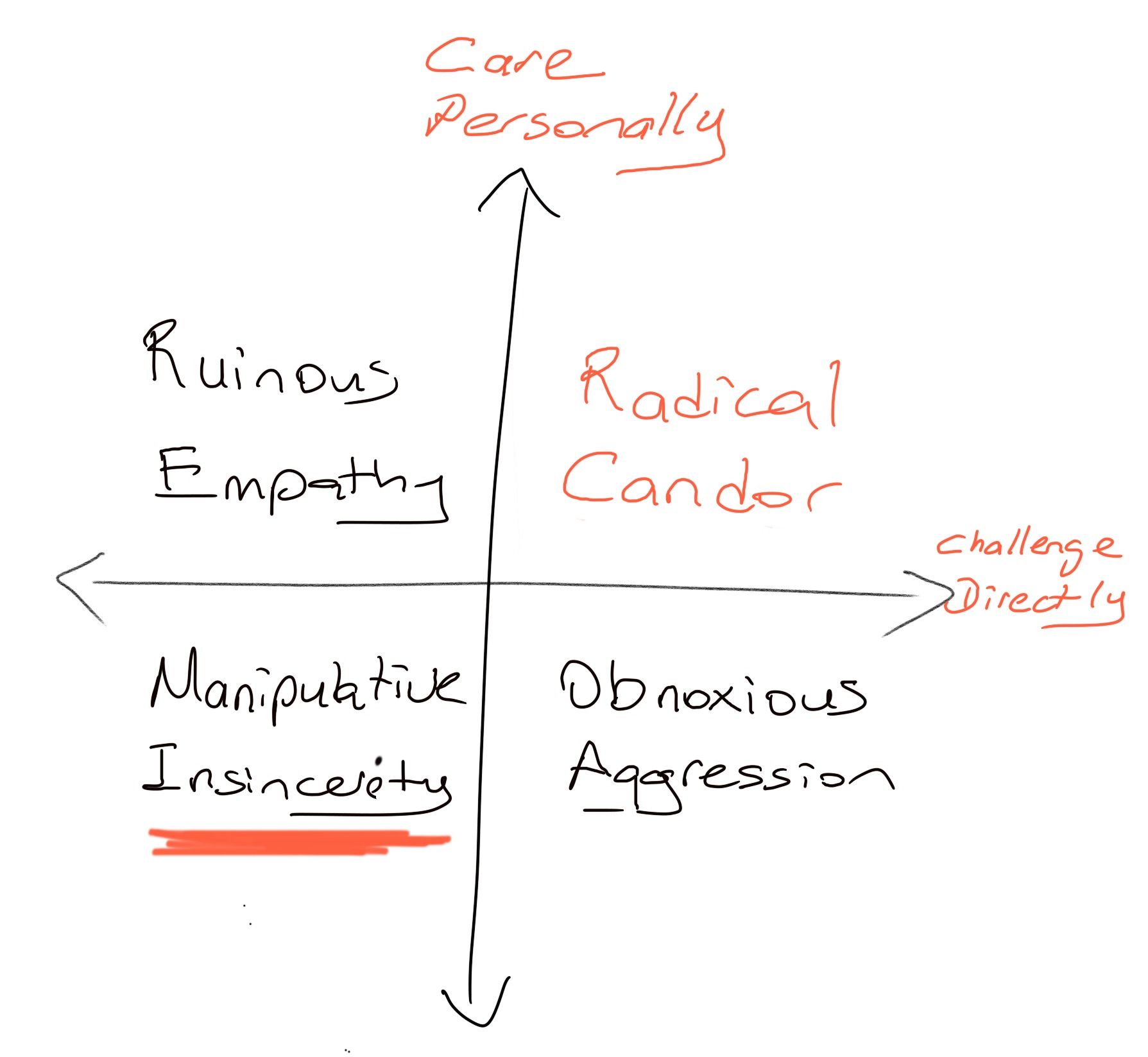
Quadrant: Ruinous Empathy
Ruinous empathy is responsible for the vast majority of management mistakes. Most people want to avoid creating tension or discomfort at work. They are like the well-meaning parent who cannot bear to discipline their kids.
When bosses are too invested in everyone getting along, they also fail to encourage the people on their team to criticize one another for fear of sowing discord.
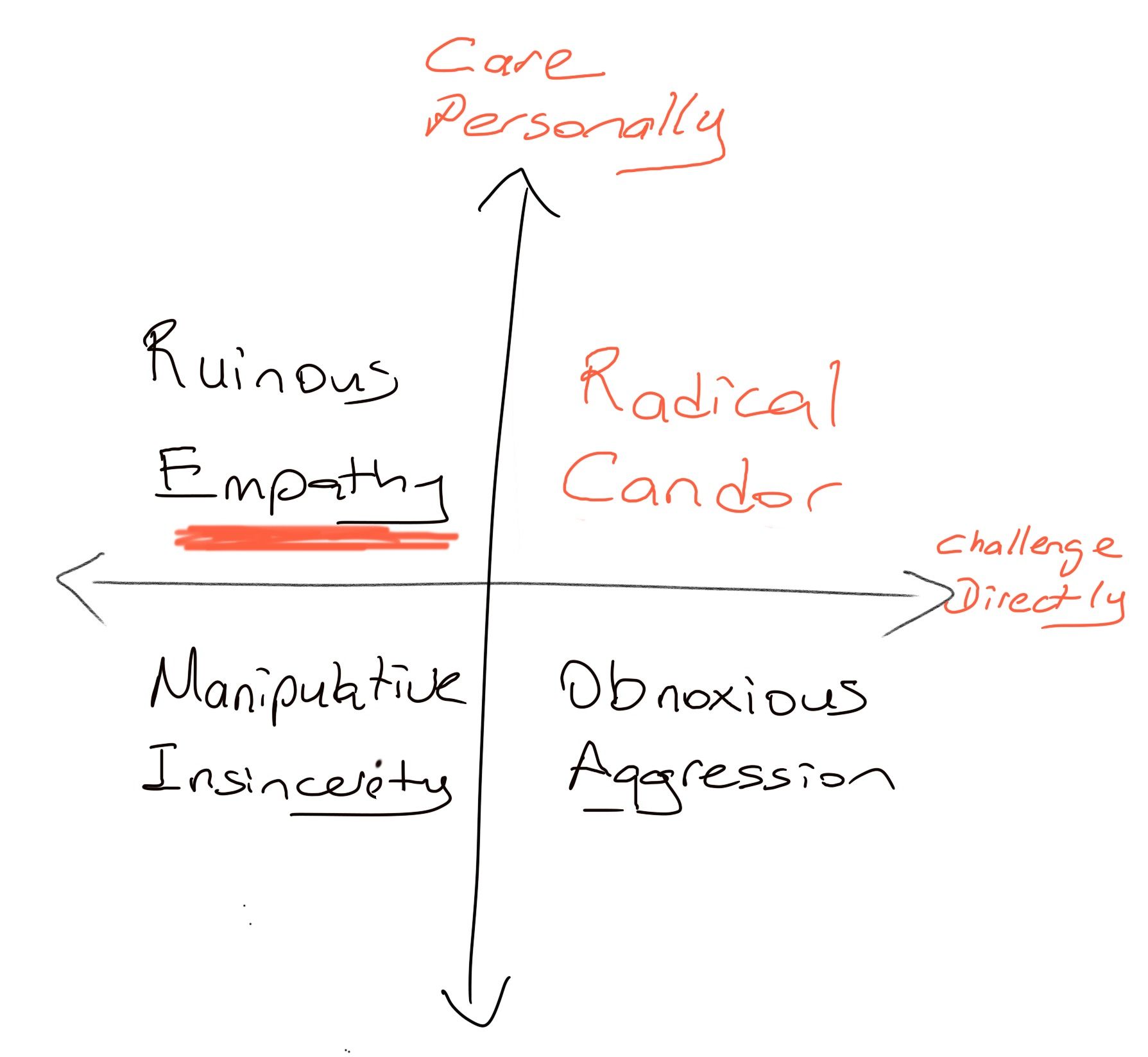
The author argues that managers need to start by asking for criticism to encourage giving guidance within their teams. Bosses get radically candid guidance from their teams not merely by being open to criticism but by actively soliciting it. If a person is bold enough to criticize you, you do not critique their criticism.
Toyota's leaders painted a big red square on the assembly line floor. New employees had to stand in it at the end of their first week, and they were not allowed to leave until they criticized at least three things on the line!
Receiving candid feedback from our team members and acting on this feedback is crucial for creating a team culture that cares to continuously improve itself and not fall victim to the gravitational pull towards mediocrity. Kim's book is a great read if you want to learn how to give effective feedback.



